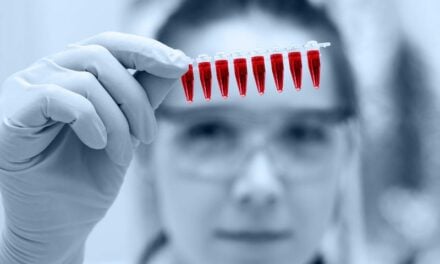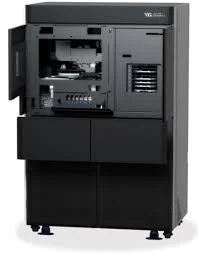Agendia, Irving, Calif, has released new data comparing genomic profiling results for patients under the age of 50 with early-stage breast cancer. The data show that the MammaPrint 70-gene assay may more effectively identify premenopausal women who can safely avoid chemotherapy.
One of the biggest challenges physicians face when treating patients with early-stage, curable breast cancer is choosing a treatment path that will mitigate the risk of disease recurrence while avoiding over- or undertreatment. Genomic profiling has helped address this clinical need, but recent findings suggest that the patient’s age may affect the veracity of results for some assays. A follow-up to the TailoRx study published in 2018 led to a change in recurrence score stratification for patients younger than age 50 and, more importantly, left the ideal treatment plan for those with a recurrence score of 21 to 25 unclear.
“Understanding how patient age may affect possible benefit from chemotherapy is a critically important question that has needed further exploration and clarification,” says William Audeh, MD, MS, chief medical officer of Agendia.
Agendia’s prospective study of MammaPrint in breast cancer patients with an intermediate recurrence score (Promis) previously demonstrated that MammaPrint, which provides a binary high or low risk of recurrence score, delivers clinically actionable results for patients who receive a recurrence score of 18 to 30 by the 21-gene assay. The current findings represent a subanalysis of the Promis data, which Agendia conducted to help determine the potential of the MammaPrint test to clarify adjuvant chemotherapy decisions for premenopausal women.
The results, which are statistically significant, demonstrate that among women aged 50 and under, 58% of those with a recurrence score of 18 to 20, and 46% of those with a recurrence score of 21 to 25, are categorized as MammaPrint low risk, indicating that they can safely forgo chemotherapy. Additionally, 15% of women with a recurrence score of 26 to 30 were found to be MammaPrint low risk, and may be potential candidates for deescalation of adjuvant chemotherapy.
For more information, visit Agendia.
Reference
- Tsai M, Soliman H, Lo S, et al. Treatment recommendations in ER+ patients www.agendia.com/wp-content/uploads/2019/11/2019_sabcs_promis-final.pdf. Accessed February 7, 2019.
Featured image:
A young woman with breast cancer. Photo © Katarzyna Bialasiewicz, courtesy Dreamstime (ID 53968758).






